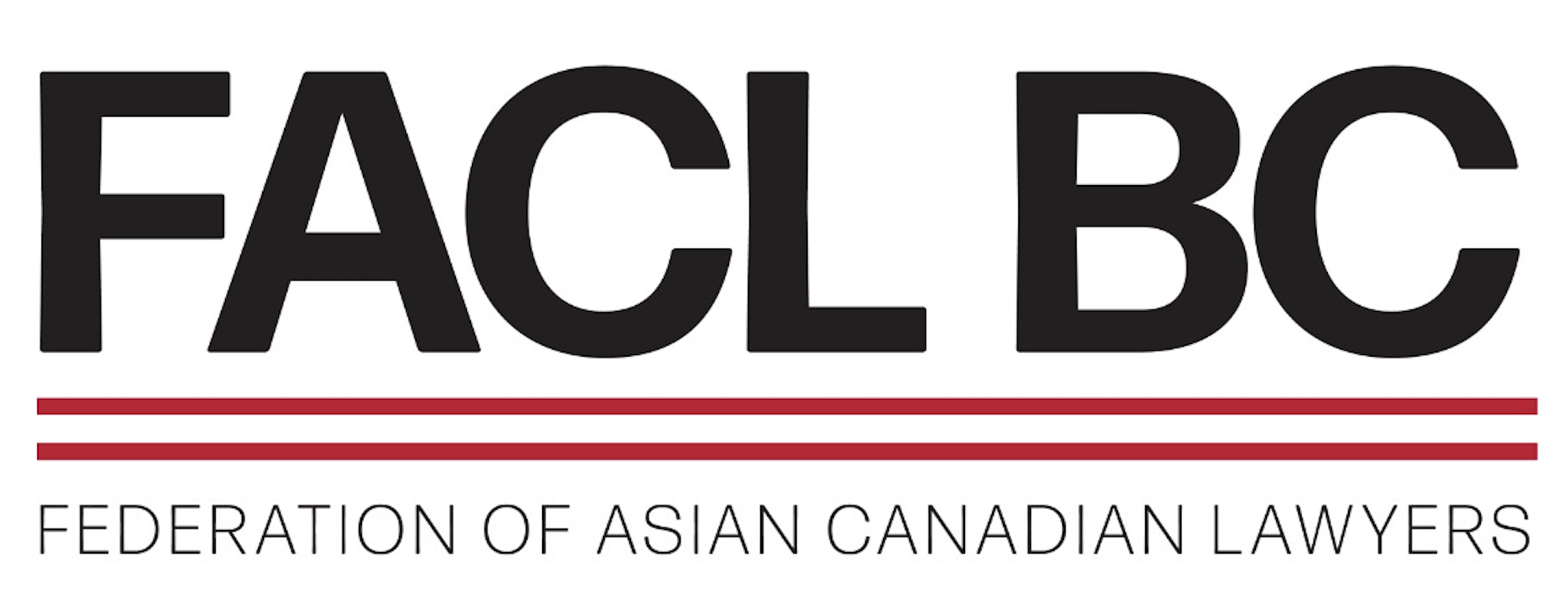The Federation of Asian Canadian Lawyers (British Columbia) Society (FACL BC) extends its warmest congratulations to its members who have received the King’s Counsel (KC) designation as announced on December 12, 2023. This well-deserved designation is a testament to their exceptional merit and contribution to the legal profession in British Columbia.
On this special occasion, we highlight the remarkable achievements of each of our distinguished members:
Cheryl D’Sa, KC is a civil litigator and mediator recognized for her expertise in personal injury cases. Cheryl was the first female racialized President of the Vancouver Bar Association. A Bencher since 2020, she currently chairs the Law Society of British Columbia’s Equity, Diversity and Inclusion Committee. She received the CBABC Debra Van Ginkel, QC Mentoring Award in 2023. Cheryl was a recent speaker on our panel, Life of a Bencher: A Conversation with Our Current Benchers of Asian Descent, featured on our Spotlight series, and recently joined our FACL BC Advisory Committee.
Gurminder Sandhu, KC is an experienced civil litigator who has appeared before all levels of the British Columbia courts and has a wide practice area consisting of human rights issues, traumatic brain injuries and real estate disputes, family law, and insurance law. He has been a Bencher of the Law Society of British Columbia since 2022 and served on the Federal Judicial Advisory Committee (B.C.) from 2021 to 2023. Gurminder was a recent speaker for our panel, Life of a Bencher: A Conversation with Our Current Benchers of Asian Descent, and a former podcast guest. Listen to Gurminder’s episode on Spotify and Apple.
Joven Narwal, KC is a prominent trial and appellate lawyer who handles high-stakes cases, specializing in criminal and securities litigation, professional regulation, and complex civil matters with criminal aspects. He was the first racialized President of the Vancouver Bar Association. Joven and his firm, Narwal Litigation LLP, have been long-time sponsors and supporters of FACL BC.
Kinji Bourchier, KC is an experienced business and commercial litigator and a leader in environmental law and commercial litigation in Canada. He has held leadership roles with the Vancouver Bar Association, the Environmental Law section of the CBABC, the Hoop Law Society, the Advocate’s Society, the Reed Athletics Fund, and the Leukemia and Lymphoma Society of Canada. Since 2015, Kinji has served as President of the Allard Law Alumni Association.
Miranda Lam, KC is the Chief Legal Officer and Vice-President of Business Development at a leading biotechnology company headquartered in Vancouver. Championing diversity, equity, and inclusion, Miranda holds leadership positions on the boards of four organizations, including as the Vice-Chair of the UBC Board of Governors and the BC Cancer Foundation. Miranda was a recent guest speaker at our FACL BC Leadership Academy and a podcast guest. Listen to Miranda’s episode on Spotify and Apple.
FACL BC takes immense pride in the collective accomplishments of our members, whose dedication and excellence inspire the legal community. Their achievements both reflect their individual prowess and underscore the diverse and impactful contributions of Asian Canadian lawyers in shaping the legal landscape in British Columbia and Canada.
We also wish to congratulate and highlight Rubinder Dhanu, KC and Kasari Govender, KC, both of whom have made exceptional contributions to the community:
Kasari Govender, KC is British Columbia’s Human Rights Commissioner. Before her current role, Kasari clerked for the Supreme Court of British Columbia and worked at a Toronto-based firm, where she built an impressive profile working on cases dealing with gender-based violence, human rights, and constitutional law. She pioneered the Rise Women’s Legal Centre, which is an important institution in our community providing access to justice for marginalized women and education at post-secondary institutions. Kasari has also graciously volunteered her time with FACL BC in the past as a panelist for “A Community Discussion: The Rise in Anti-Asian Discrimination in B.C.”.
Rubinder Dhanu, KC is an experienced criminal lawyer, who was formerly a Crown prosecutor and now runs a private practice as a defense attorney. Rubinder has appeared before all levels of the British Columbia and Alberta courts and the Supreme Court of Canada. Rubinder’s contributions to the legal community extend beyond the courtroom, as he is also a frequent presenter on various legal topics and is a mentor to his associates and others.
Once again, FACL BC congratulates the newly appointed King’s Counsel on their well-deserved designations and thanks them for their past and ongoing contributions to the legal and wider community in British Columbia.
